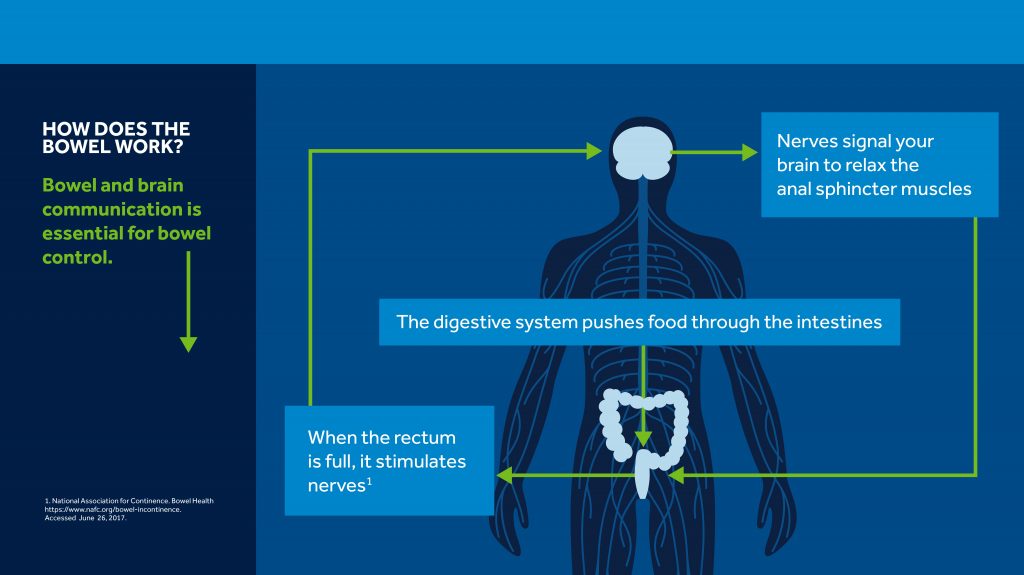
Don’t worry, you are not alone. The Surgery Center of Amarillo is equipped and ready to help.

If you’ve found that the need to go to the bathroom is controlling you more than you’re controlling it, you could have a medical condition called Fecal Incontinence or FI. And despite what you may have heard, it is NOT an inevitable part of the aging process, and it’s not something you should ‘just have to live with.’
Fortunately, there are real, effective treatments available. The first step on your path to better wellness begins with understanding the signs and symptoms:
Frequent bowel accidents
Not being able to resist the urge to go
Not being able to feel when you need to go
Planning your day around the toilet
Watching what you eat and how much
Using pads or protective underwear
Worrying if you smell
Avoiding being around people

1 in 12 adults has Fecal Incontinence
Bowel incontinence is not a normal part of getting older, but thankfully it is treatable!
Bowel control problems are extremely common, but they are not normal. Bowel control problems affect more than 20 million adults in the U.S. If you’re one of them, you know how much chronic FI can interrupt your life.

Bowel Incontinence is usually an acquired disorder and may be caused by

There are lots of reasons why people don’t seek treatment for FI. Many people don’t think that anything can be done about it. Some assume that it’s actually normal as they get older. And others are simply too embarrassed to talk about it. In fact, 85% of adults living with FI do not seek help for their condition.
That’s unfortunate, because there’s a whole range of proven, effective treatments available, including some that you can do on your own, right now. Some of these options include…

Dietary Modification – Changes may include adjusting fiber intake or eliminating troublesome foods
Bowel Retraining – Also called biofeedback, this involves scheduling bathroom visits, delaying using the bathroom and keeping a diary. These can all help you manage and improve how frequently and urgently you need to go.
Medication – There is a range of medications, including over-the-counter and prescription oral medications to help with function. Some of these may include anti-diarrheal medications.
Neuromodulation – A therapy that uses gentle nerve stimulation thought to normalize the communication to the brain.
You may have tried changing your diet, physical therapy or medications, but the results just aren’t what you hoped.
The InterStim System
One of the most exciting therapies our office offers for the treatment of FI is the InterStim system by Medtronic.
For more than 25 years, InterStim has been used to improve bladder and bowel function in more than 300,000 patients.
One medical study found that after 5 years, the rate of success was 89%, and 36% of patients with leaking had no leakage at all3,†. Device-related adverse events occurred in ≥5% of subjects post-implant. The most common device-related adverse effects were implant site pain, paresthesia, undesirable change in stimulation, implant site infection, urinary incontinence, neurostimulator battery depletion, diarrhea, pain in extremity, and buttock pain.
InterStim is a form of neuromodulation called sacral neuromodulation that uses gentle nerve stimulation to correct the bowel-brain communication pathway to help restore* bowel function4,5.
Unlike other Fecal Incontinence treatments, InterStim lets you try it first with an evaluation. The evaluation is performed by placing a lead (a thin wire) in the upper part of your buttock. With NO cutting. The lead then attaches to a small external device worn discreetly under your clothes.
Most patients can tell within just a few days if it’s working for them, though some evaluations may take up to two weeks. After the evaluation period, you and your doctor will decide if the long-term therapy is right for you. If it is, your evaluation device will be replaced with an implantable device called a neurostimulator during a short outpatient procedure.
Of those patients who have found success with InterStim, many have told us that it has truly transformed their lives. People who had lived for years with leaks and accidents have found they can once again control their bowel, rather than having their bowels control them. No more scheduling activities based on bathroom availability. No more sense that they have to go right now. And no more unpleasant accidents.
If you think InterStim might be right for you, Dr. Weinheimer and our staff are available to discuss your particular condition and treatment options.
For many patients, the hardest part of their treatment plan is getting started. It isn’t always easy to talk about incontinence, even with your physician, but it’s a necessary first step if you want to see results.
There’s no need to be embarrassed. Dr. Weinheimer and our medical staff work with FI patients every single day, and we’re experts at making sure you’re comfortable having an open, honest conversation about the symptoms you’ve been experiencing.
Give us a call today at 806-457-2054 and we’ll help you develop a treatment program that’s right for you.
Still have more questions?
Learn more about InterStim Here.
Hear from other patients like you to hear their stories
It’s important to remember this therapy is not for everyone. This treatment is prescribed by your doctor. Please talk to your doctor to decide whether this therapy is right for you.
Implanting an InterStim system has risks similar to any surgical procedure, including swelling, bruising, bleeding and infection. In addition to risks related to surgery, complications from this therapy can include pain, infection, sensation of electrical shock, device problems, undesirable change in voiding function and lead migration, among others. Talk with your doctor about ways to minimize these risks.